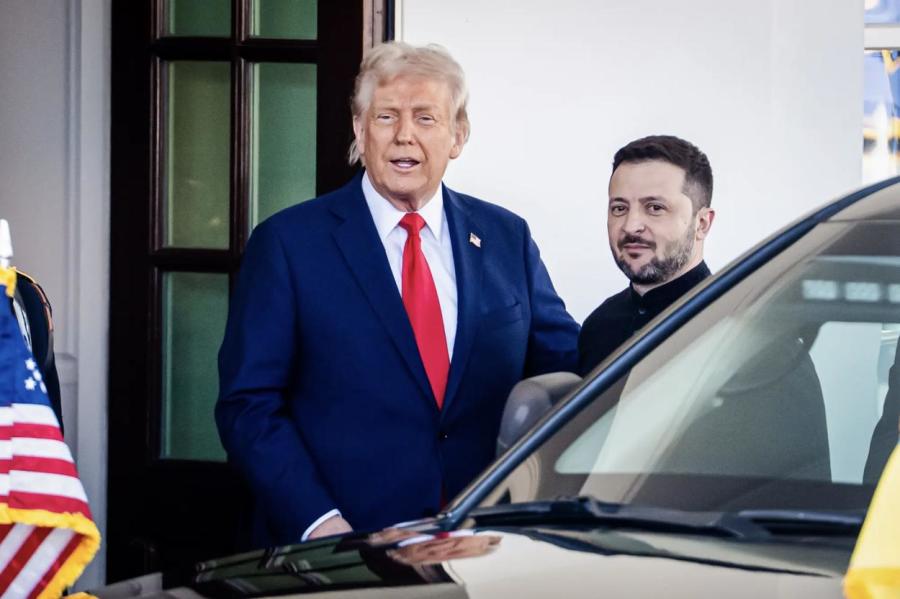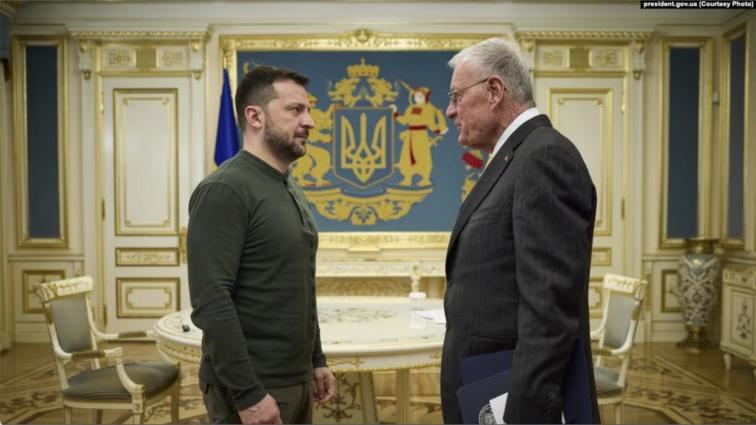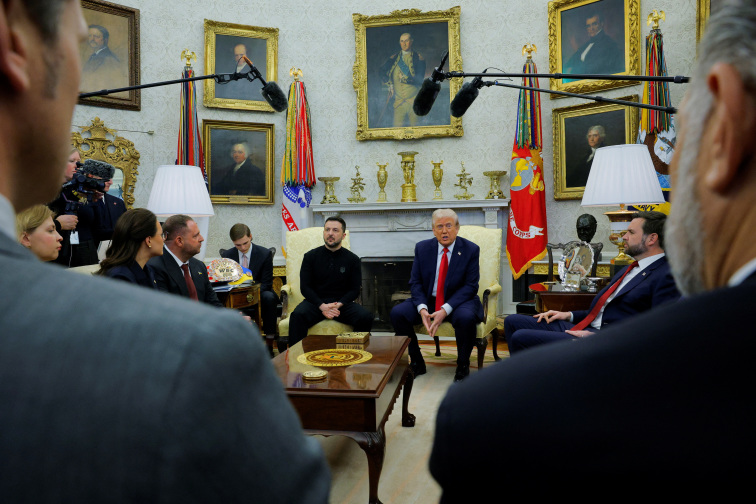U.S. President Donald Trump welcomed Ukrainian President Volodymyr Zelensky at the White House in Washington on February 28, 2025. (Madalina Vasiliu/Dajiyuan)
[People News] On March 31, 2025, the international political scene was shaken once again. Multiple media outlets reported that Ukrainian President Volodymyr Zelensky recently announced his refusal to honor a rare earth mineral agreement previously reached with the United States, instead seeking to renegotiate its terms. This move has provoked strong dissatisfaction from U.S. President Donald Trump, who warned that Zelensky’s actions would lead to “very big trouble.” The incident has not only heightened tensions between the U.S. and Ukraine but has also raised questions about Ukraine’s international positioning.
The mineral agreement in question involved Ukraine supplying rare earth resources to the United States in exchange for continued U.S. military and economic support. Rare earth elements are crucial for high-tech industries and defense applications, making them strategically significant to the U.S. However, Zelensky recently argued that the agreement’s terms were unfair to Ukraine, refusing to view U.S. military aid as a form of "debt" and insisting that Ukraine "owes the U.S. nothing." He also demanded that the U.S. provide additional funding and weaponry, even suggesting that Russia’s frozen assets should be transferred to Ukraine. His remarks were widely interpreted as a direct challenge to the Trump administration.
Trump responded swiftly and did not conceal his anger. In a media interview, he denounced Zelensky’s actions as “unreliable and untrustworthy.” He warned, “If Zelensky tries to back out of the rare earth deal, he will face big trouble—very big trouble!” Trump also made it clear that Ukraine’s accession to NATO was “completely out of the question” and accused Zelensky of engaging in “political gambling” to extract more benefits. Analysts suggest that Trump’s hardline stance may signal a further tightening of U.S. policy toward Ukraine.
This dispute comes as the Russia-Ukraine conflict remains in a prolonged deadlock, with Ukraine facing increasing economic and military pressures. Zelensky’s move may be an attempt to assert greater leverage on the international stage while projecting a strong stance to domestic audiences. However, it also places his relationship with the U.S. in a precarious position. Given that the U.S. is Ukraine’s largest aid provider, any deterioration in U.S.-Ukraine relations could severely impact Kyiv’s ability to continue resisting Russian aggression.
International reactions have been mixed. Some European nations have urged both sides to exercise restraint to prevent further escalation, while Russia has welcomed the development, seeing it as a weakening of Western unity. Russian state media even mocked Zelensky’s decision as "digging his own grave." Meanwhile, within the U.S., public opinion is divided. Some Republicans support Trump’s tough stance and advocate stricter measures against Ukraine, while Democrats worry that this dispute could undermine America’s strategic position in Europe.
As of now, no formal negotiations have taken place between the U.S. and Ukraine regarding the matter, but tensions are clearly rising. Zelensky’s reversal has cast uncertainty over the future of the mineral agreement and introduced new complexities into the geopolitical dynamics between the U.S., China, and Russia. In the coming weeks, the international community will closely watch whether Trump takes concrete action and how Zelensky navigates his increasingly challenging domestic and foreign predicament.
(First published by People News)








News magazine bootstrap themes!
I like this themes, fast loading and look profesional
Thank you Carlos!
You're welcome!
Please support me with give positive rating!
Yes Sure!